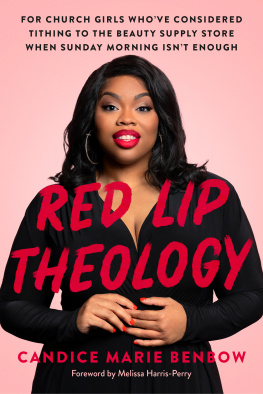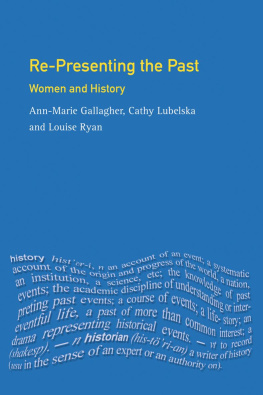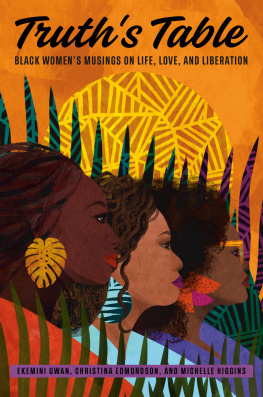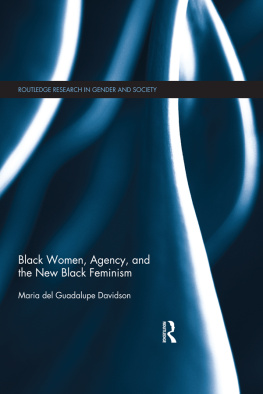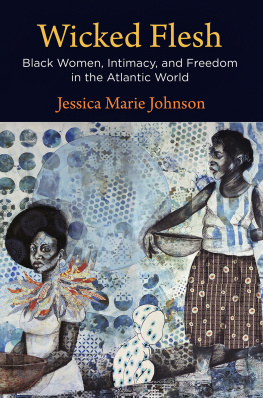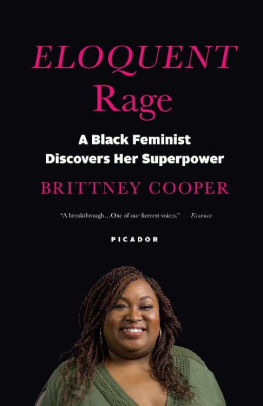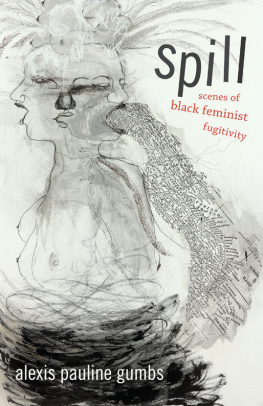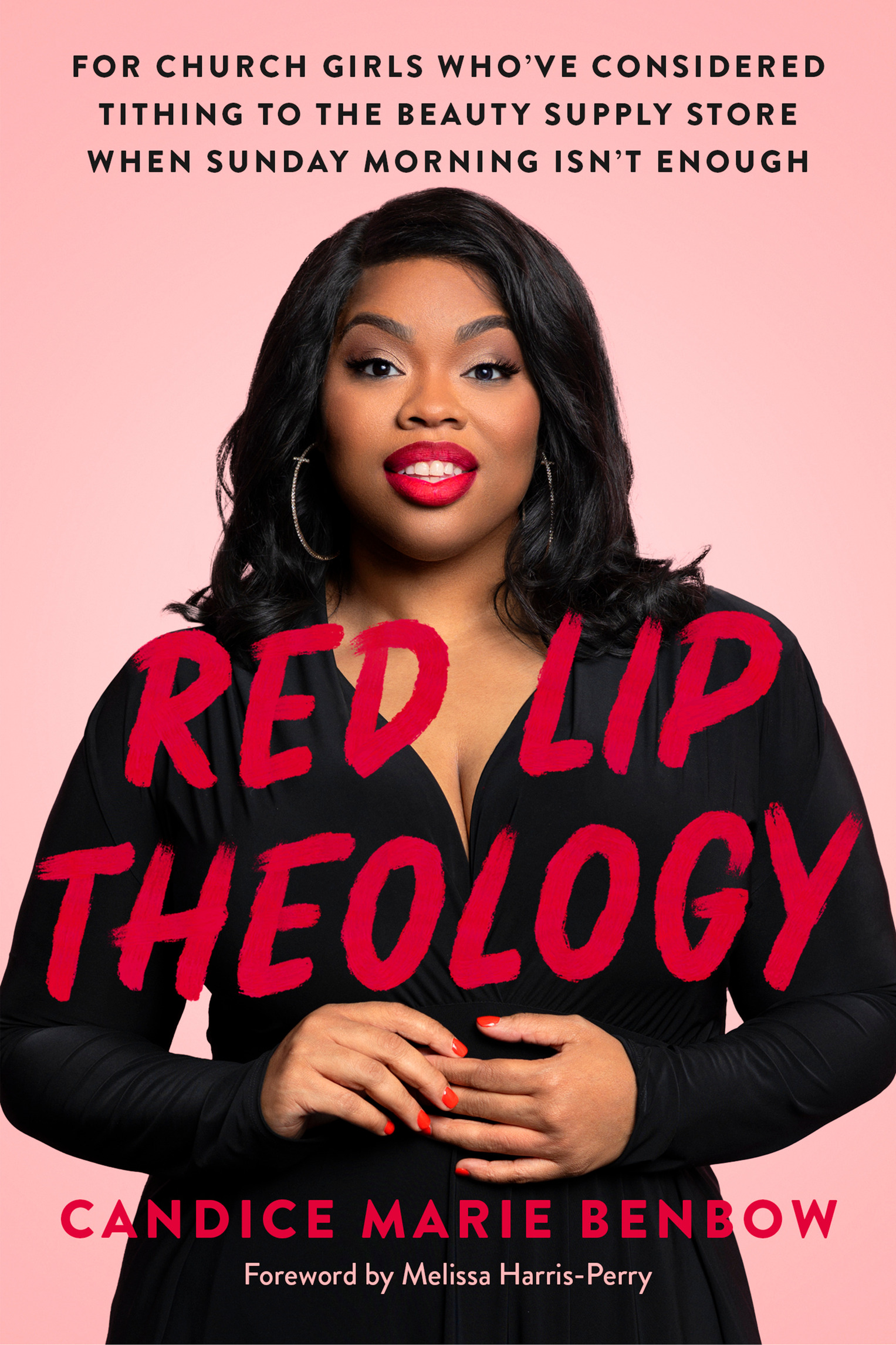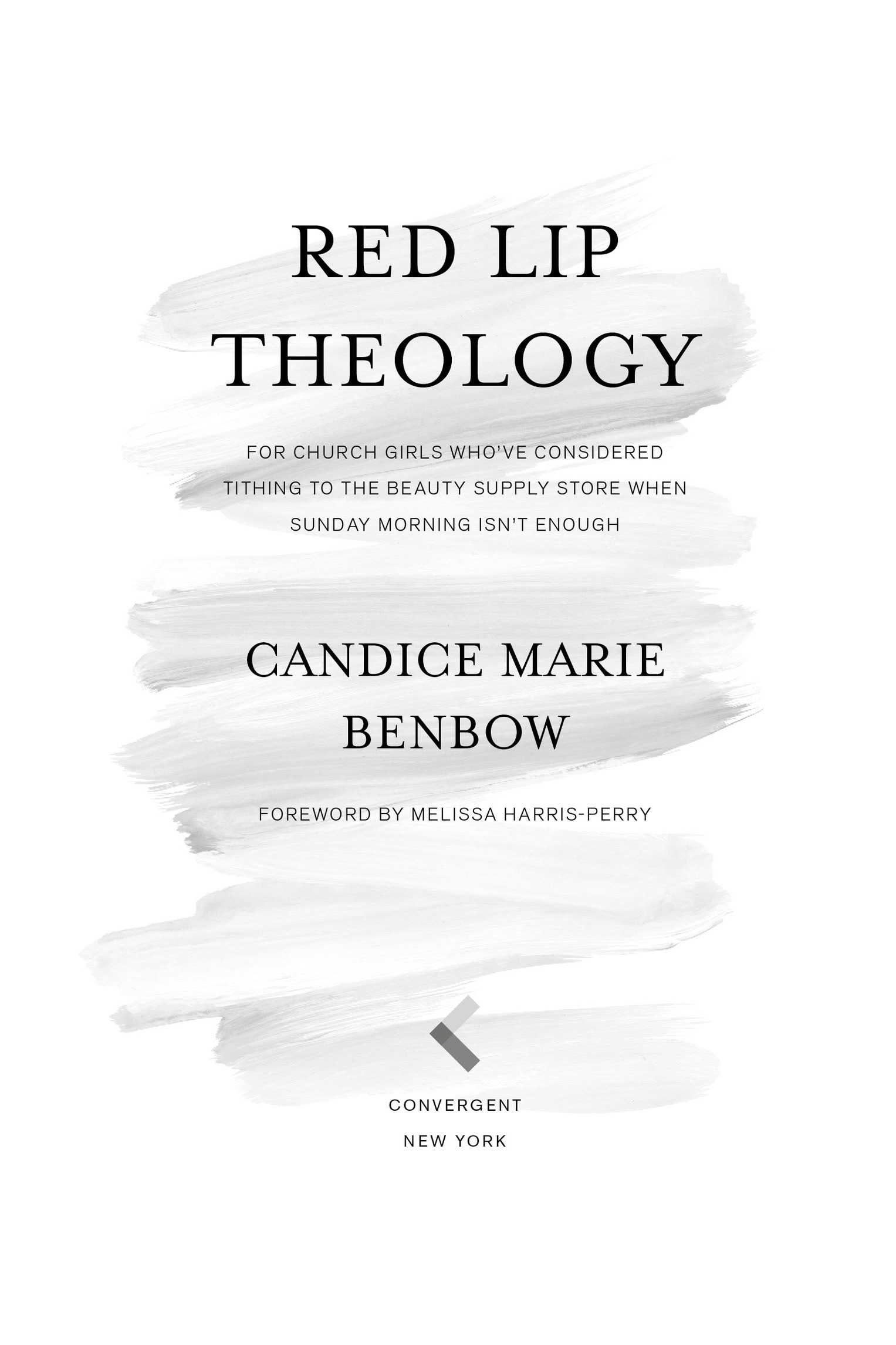Contents
Landmarks
Print Page List
Copyright 2022 by Candice Marie Benbow
Foreword copyright 2022 by Melissa Harris-Perry
All rights reserved.
Published in the United States by Convergent Books, an imprint of Random House, a division of Penguin Random House LLC, New York.
Convergent Books is a registered trademark and its c colophon is a trademark of Penguin Random House LLC.
The ESV Bible (The Holy Bible, English Standard Version), copyright 2001 by Crossway, a publishing ministry of Good News Publishers. Used by permission. All rights reserved. The Message, copyright 1993, 2002, 2018 by Eugene H. Peterson. Used by permission of NavPress, represented by Tyndale House Publishers. All rights reserved. The Holy Bible, New Living Translation, copyright 1996, 2004, 2015 by Tyndale House Foundation. Used by permission of Tyndale House Publishers, Carol Stream, Illinois 60188. All rights reserved. The New Revised Standard Version Bible, copyright 1989 National Council of the Churches of Christ in the United States of America. Used by permission. All rights reserved worldwide. The Revised Standard Version of the Bible, copyright 1946, 1952, and 1971 National Council of the Churches of Christ in the United States of America. Used by permission. All rights reserved worldwide.
Library of Congress Cataloging-in-Publication Data
Names: Benbow, Candice Marie, author.
Title: Red lip theology / Candice Marie Benbow; foreword by Melissa Harris-Perry.
Description: First edition. | New York: Convergent, [2022]
Identifiers: LCCN 2021040202 (print) | LCCN 2021040203 (ebook) | ISBN 9780593238462 (hardcover) | ISBN 9780593238479 (ebook)
Subjects: LCSH: African American womenReligious life. | Christian womenReligious life.
Classification: LCC BR563.N4 B46 2022 (print) | LCC BR563.N4 (ebook) | DDC 277.3082089/96073dc23
LC record available at https://lccn.loc.gov/2021040202
LC ebook record available at https://lccn.loc.gov/2021040203
Ebook ISBN9780593238479
crownpublishing.com
Book design by Caroline Cunningham, adapted for ebook
Title page background image and chapter opening detail: iStock/Sandra M
Cover design: Sarah Horgan
Cover photograph: Kennedi Carter
ep_prh_6.0_138931609_c0_r0
BY MELISSA HARRIS-PERRY
Sin. Its the name of my favorite red lipstick.
Theres no doubt that MAC Cosmetics knew this color, a deep wine with hints of blue undertone, would be beloved by Black women. Which is what makes the name so bothersome. Sin. Really? Im all here for Naughty, Rowdy, or even Trouble, but it is downright mean to label a Black womans best red lipstick Sin.
Red lipstick is taboo for many girls raised in Black churches or reared in Black families and neighborhoods where religious mores determine collective norms even if the folks enforcing those norms arent tithing members in good standing of any actual congregation. Shamed for being fast, womanly, or too damn grown, Black girls are encouraged to stop doing so much or being extra.
Red lipstick is definitely extra.
Even when the bank account is empty or emotional resources are low, sisters are taught never to bring raggedy dresses, stockings, shoes, bags, belts, lashes, or nails into the house of the Lord. Were encouraged to adorn our sanctified smiles with a matte lip in taupe, cocoa, or coffee bean. Even a glossy mauve or spice is saintly perfection. But red? Never red. Its printed right there in the name: Sin.
Navigating a whole, entire, complicated, cray morality play of righteousness and rouged lips every time you step up to the makeup counter is exhausting. Surely, Black women who shoulder more than our fair share of child-rearing, church-building, community-gathering, bag-securing, and waymaking deserve a God better than some petty, distant patriarch policing our lip color.
Black girls deserve a magnificent, loving, immanent, and chill God. We need a God who loves our minds when we make deans list and when we peace-out on the PhD. We need a God who loves our hearts even when they are broken as a result of our foreseeably foolish choices. We know God will not shield us from agony when we lose our mama and will not always guard us from the evil of a sexual assault, but we need a God big enough to send our BFFs to our grieving chamber, to gently lure us to the makeup counter, and to help us choose a red lipstick so that we can see ourselves again.
We not only need a God who loves Black girls; we need a God who likes us. Us. Regular Black girls, with nappy hair, big hips, and red lips. Candice Marie Benbows Red Lip Theology is a road map to where we might find the God we needWinston-Salem, North Carolina.
Listen! I was just as shocked as I imagine you must be to learn this. A somewhat unremarkable city of a quarter million residents nestled in the North Carolina Piedmont, Winston-Salem is not a beach town or a mountain getaway. It isnt the states capital or its major metropolitan. The citys tobacco foundations are evident in the twin names that eventually became bestsellers for R. J. Reynolds.
Winston tastes good like a cigarette should!
Lord help us.
Winston-Salem is home of the arguably divine Krispy Kreme doughnuts, but that isnt why Benbows text uncovers God there. Benbow gets tight with God in Winston-Salem because it is where she finds herself. Benbow was raised in this city I now call home, where I am raising my own daughters. Indeed, my seven-year-old regularly introduces herself as Anna from Winston-Salem.
I roared with laughter when Benbow journeyed through JCPenney to the new side of the mall, shouted with recognition when she recounted Parkland High School football games, and church-lady hummed while giving a judgmental side-eye to the judgmental church folk she describes. Oh, the contradictions!
In short, I see myself in Candice. I feel her. The loving the wrong one. GIRL. The being over white folk in the academe. CHILE. The enduring scars of sexual assault. LISTEN. The losing the will to live. PREACH! The clinging to your squad cause they are all you got. HALLELUJAH.
Candice from Winston-Salem. Its just an ordinary Black-girl story. Which means, of course, it isnt ordinary at all.
Poet, playwright, artist, and author Ntozake Shange concludes her magnificent choreopoem For Colored Girls Who Have Considered Suicide When the Rainbow Is Enuf by writing:
i found god in myself
and i loved her,
I loved her fiercely.
Adapting Shange, Benbows subtitle signals that her text is an offering: For Church Girls Whove Considered Tithing to the Beauty Supply Store When Sunday Morning Isnt Enough. And like Shanges 1974 play, Red Lip Theology discovers the sacred during a pilgrimage through the profane. Benbows unflinching examination and compassionate appreciation of her own self and soul lead her to the same conclusion as Shangerecognition of the marvelous, messy, red-lip-loving God within.
And because we find ourselves in Benbow, we too find God in ourselves, and love herfiercely.
Melissa Harris-Perry is the Maya Angelou Presidential Chair in the Department of Politics and International Affairs and the Department of Women, Gender, and Sexuality Studies at Wake Forest University.

